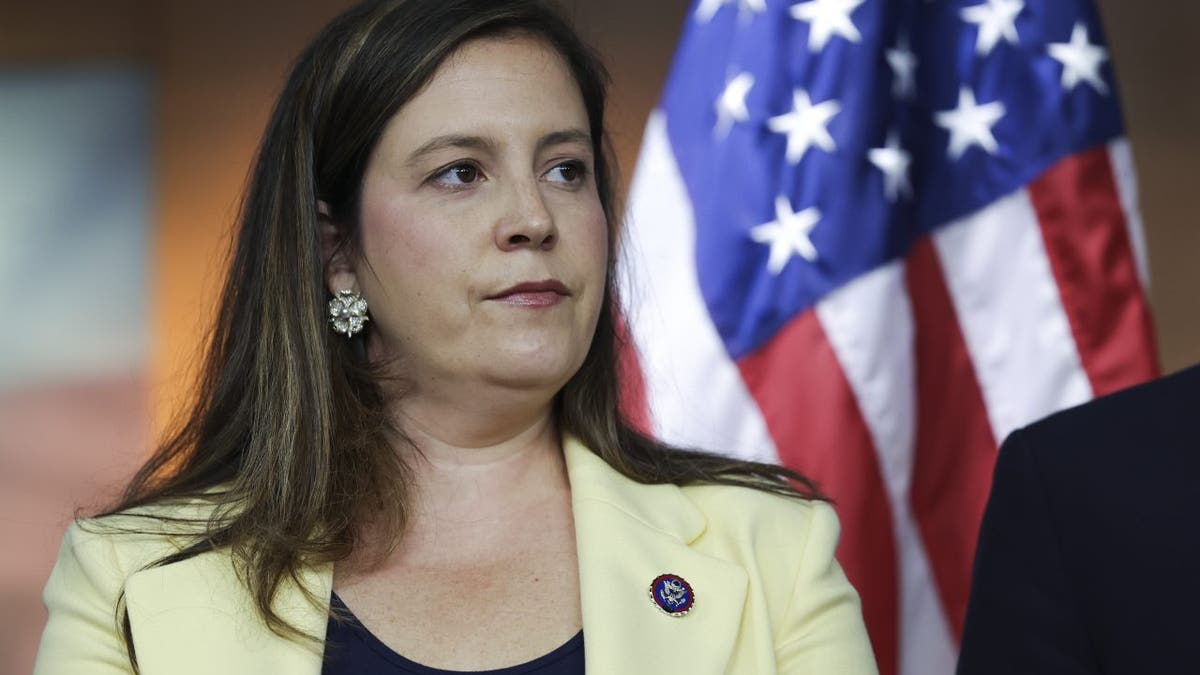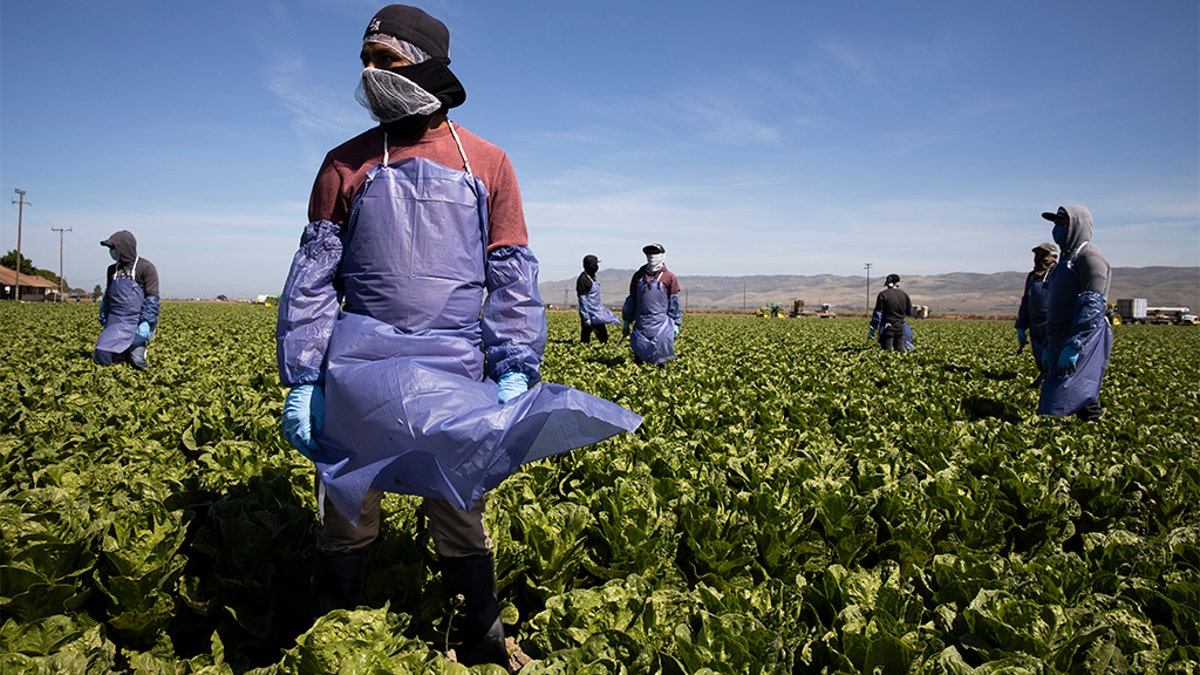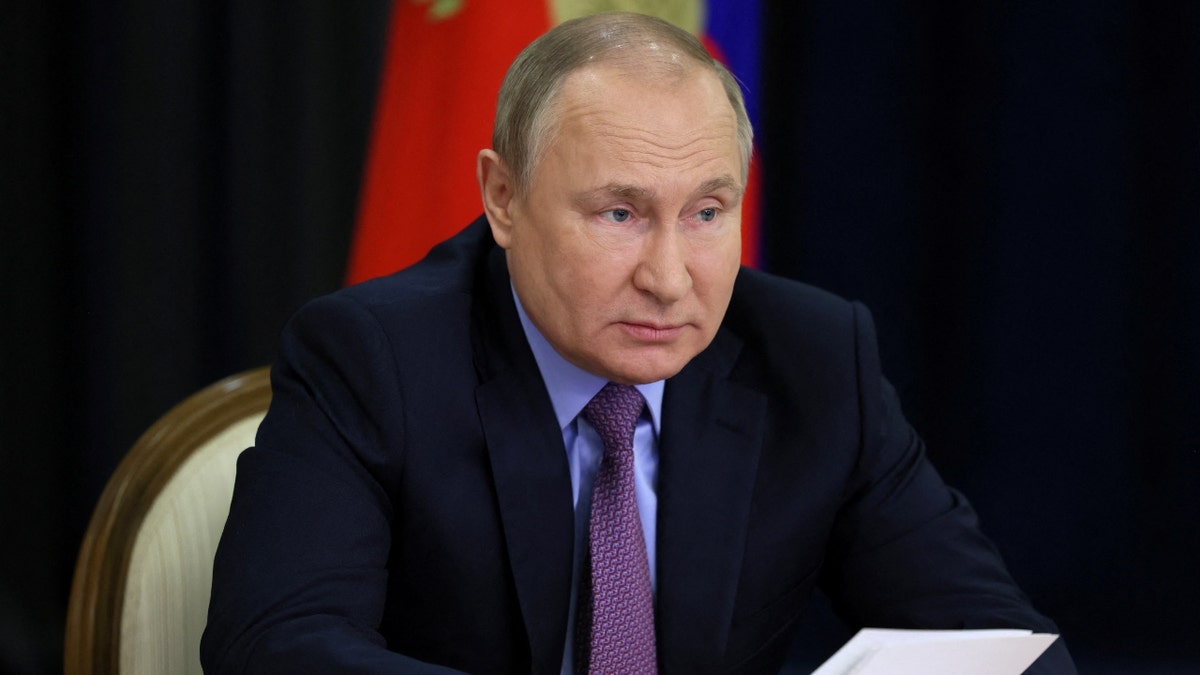Democrats' failed 'tax and spend' policies are to blame for nation's inflation: Rep. Stefanik
This Democrat-led Congress has spent more tax-payer dollars than any other Congress in our nation's history, New York Rep. Elise Stefanik told 'Sunday Night in America with Trey Gowdy.'
EXCLUSIVE: House Republicans led by Rep. Elise Stefanik are turning attention to the power that enemies of the U.S. have to exploit vulnerabilities in the agriculture industry by introducing new legislation to prevent adversaries' acquisition of American companies amid a global supply chain food shortage.
Stefanik, who serves as the House Republican Conference chair, was joined by Rep. Rick Crawford, R-Ark., in introducing the bill Thursday.
"Food security is national security, and I am proud to stand up against our foreign adversaries as they attempt to exploit any potential vulnerability and assert control over our agriculture industry," Stefanik told Fox News Digital.
STEFANIK BLASTS NY GOV. HOCHUL'S REACTION TO GUN RIGHTS RULING: ‘GOING AS FAR LEFT AS POSSIBLE’

"Food security is national security, and I am proud to stand up against our foreign adversaries as they attempt to exploit any potential vulnerability and assert control over our agriculture industry," Stefanik told Fox News Digital. (Photo by Kevin Dietsch/Getty Images)
"The United States cannot allow malign ownership bids of American assets by China, Russia, Iran, and North Korea to undermine the efforts of our farmers, whose hard work feeds and fuels our communities. Especially as we witness the devastating impact of a supply chain crisis, the United States cannot cede any ownership of our food supply to those who do not share our security interests," Stefanik continued.
The bill specifically would keep China, Russia, Iran and North Korea from being able to buy American agriculture companies, citing the countries as "prohibited." It also lists biotechnology and agriculture as critical infrastructure.
In addition, the proposed legislation includes a provision that would make the Secretary of Agriculture a member of the U.S. Committee on Foreign Investment and would require reporting from the secretary on the risk of "foreign purchases" of companies in the agriculture sector.
"Adversarial nations, like China, continue to threaten our homeland, using tactics like buying American agriculture companies and stealing agriculture research to undermine our economy. Washington must realize that agriculture security in national security, and we have a duty to protect our food supply and those who produce it. I’m proud to work with Rep. Stefanik to draw attention to this critical threat and seek to defend American agriculture," Crawford told Fox News Digital.

Farm laborers from Fresh Harvest working in Greenfield, California. (Photo by Brent Stirton/Getty Images)
The issue of food security has become a national problem amid the ongoing war between Russia and Ukraine, which has led to global food shortages.
Republican senators have warned that Russia is using food manipulation as a weapon in its deadly invasion of Ukraine, and are working with Ukrainian leaders to turn attention to the deteriorating global food security crisis.
Sen. Joni Ernst, R-Iowa, has slammed Russia for using food as a "quiet weapon" aimed to starve civilians and force Ukraine to surrender to its army.
In addition, South Dakota Gov. Kristi Noem recently echoed that "food security is national security."
"Americans deserve to have their leaders treat disruptions in our food system – from foreign interference to fires to shortages – with concern," said Noem.

Russian President Vladimir Putin chairs a meeting on the country's transport industry via a video link in Sochi, Russia May 24, 2022. (Sputnik/Mikhail Metzel/Kremlin via REUTERS)
CLICK HERE TO GET THE FOX NEWS APP
The Biden administration has also taken note of the impending crisis, with President Biden criticizing China last month for not taking part in the United Nations' Food Security Ministerial.
A Biden administration official called the move by China "disappointing, but sadly not surprising" and led the ministerial, which was created to mobilize action on global food security amid Russia’s war on Ukraine.
Fox News' Brooke Singman contributed to this report.






